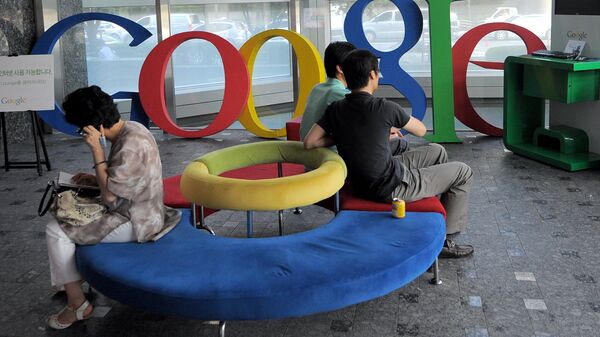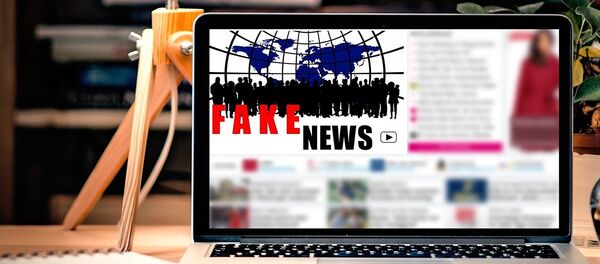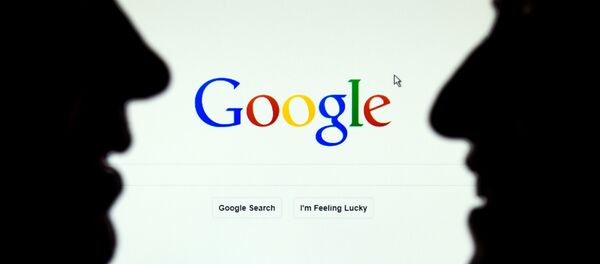MOSCOW (Sputnik) — On Friday, Google wrote in its blog the company was making a "Fact-Check" tag available for search results and news stories worldwide and in all languages. The label would identify articles that would have been reviewed by publishers and fact-checking organizations that Google compiled a list of. Fact-check community has grown to 115 organizations, according to the blog post.
"These fact checks are not Google’s and are presented so people can make more informed judgments. Even though differing conclusions may be presented, we think it’s still helpful for people to understand the degree of consensus around a particular claim and have clear information on which sources agree," Google wrote in its blog.
Who Can Be Trusted?
Helpful on the face of it, the new function can turn out to be misleading, Edward Herman, co-author with Noam Chomsky of famous "Manufacturing Consent: The Political Economy of the Mass Media," told Sputnik.
"The facts will be checked by ‘named trusted publishers’ who are ‘algorithmically determined to be an authoritative source of information.’ But who is the source on Syria and claims about who was responsible for the recent civilian killings? The NYT [New York Times]? The UN? How do we know the basis of the algorithm's choice? Isn't it likely to be shaped by power?" Herman said.
By "recent civilian killings" Herman refers to the latest development in Idlib. On April 4, a suspected chemical weapons incident in Syria’s Idlib province claimed the lives of some 80 people and inflicted harm on an additional 200 civilians. The Syrian National Coalition of Revolutionary and Opposition Forces, as well as a number of Western states, accused the Syrian government troops of carrying out the attack, while Damascus has refuted these allegations.
More Sophisticated Way of Influencing?
Putting a tag of "verified information" next to a piece that has been checked by institutions with doubtful authority can be even more misleading than "fake news" themselves, distinguished research psychologist Robert Epstein told Sputnik.
"Fake news stories are visible sources of influence. … Visible sources of influence impact people quite predictably: people pay attention to information that supports their biases and beliefs, and they ignore or reject the rest. Far more dangerous are new types of influence that people can’t see," Epstein said.
According to the researcher, "fake news" might be impacting hundreds of thousands or even millions of people every day. "But let’s put this into perspective: bias in search results and search suggestions is likely affecting billions of people every day without their knowledge. As a means of influence, fake news is relatively trivial in its impact," he stated.
More 'Grey Areas' in News World?
Another consequence that the fact-checking feature may entail is a growing number of confusing articles, which are true only partially, unlike totally "fake news." Nino Saviano, political strategist and founder of Savi Political Consulting, an international campaign strategy firm, calls such articles "gray areas" in the news world.
"Real and fake news is not as simple as black and white. Generally, I see this fact-checking function as likely to eliminate a great deal of fake news from gaining prominence in simple searches. But there will be a gray area that will be the subject of much debate. We just don’t know yet how big the gray area is going to be and how it will be treated by Google, Facebook and others," Saviano told Sputnik.
According to Google, the new feature was introduced as a part of its efforts to help combat the spread of misinformation and fake news. The fact-checking feature was first introduced for Google News in the United States and the United Kingdom in October 2016.
"Fake news" has become a widely-used label especially after the latest US presidential campaign. In February, US President Donald Trump blocked from a briefing held by White House US and international media such as the New York Times, CNN, Los Angeles Times, Hill, Politico, BuzzFeed, Daily Mail, the BBC, and New York Daily News calling some of them a danger to the nation as they were allegedly publishing fake news.





